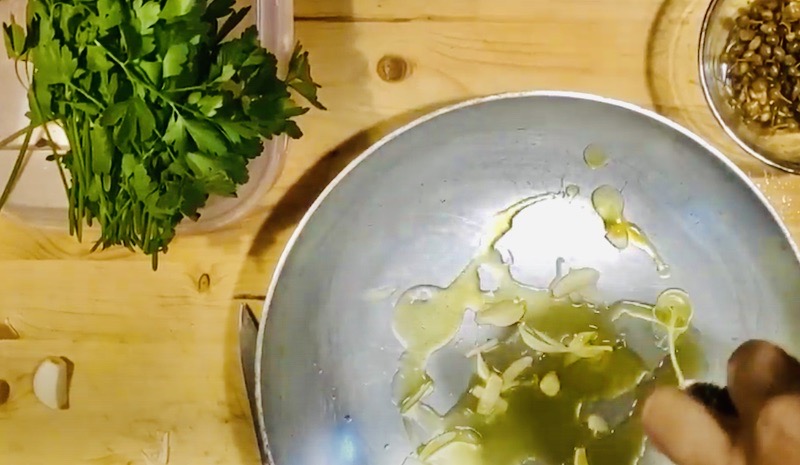As Sicilian farmers, we take great pride in our rich culinary traditions, which are deeply rooted in our culture. One of the most essential ingredients in our kitchen is Extra Virgin Olive Oil (EVOO), which is not just a cooking oil but a symbol of our heritage. EVOO is an integral part of our daily lives, from cooking to superstitions, and even in our language and cosmetic routines.
Why We Don’t Fry with Fresh EVOO
While we adore EVOO, we don’t use our fresh, high-quality EVOO for frying.
We believe it would be a shame to lose some of its precious properties by exposing it to high temperatures. Instead, we use EVOO from the harvest two or three years earlier, which still retains its rich flavor and health benefits. You can use any vegetable oil for frying, but we always save some EVOO for future use, as it’s an ancient tradition to have a steady supply of olive oil at home.
The Benefits of EVOO
EVOO is renowned for its numerous health benefits, including its high content of monounsaturated fats, which can help reduce bad cholesterol levels and increase good cholesterol levels, promoting heart health. It also contains antioxidants that protect the body from damage caused by free radicals. Unlike other oils extracted using chemical solvents, EVOO is produced solely by pressing the fruit of the olive tree, resulting in a pure, unadulterated product.
Frying with EVOO
When it comes to frying, EVOO has gained popularity as a healthier alternative to other frying oils. We endorse EVOO for shallow frying, as it can produce crispy, delicious food without compromising on its health benefits. The smoke point of EVOO is around 375°F, which means it can be heated to a not extremely high temperature. This makes it an ideal oil for a certain kind of frying, as it can produce crispy, delicious food without compromising on its health benefits.
Health Benefits of Frying with Olive Oil
- Nutritional Profile: Olive oil is rich in monounsaturated fatty acids (MUFA) and contains beneficial compounds like polyphenols, which contribute to its health-promoting effects. These components are retained better in olive oil than in other oils during frying, which helps maintain its nutritional benefits (Chiou & Kalogeropoulos, 2017; Harwood & Yaqoob, 2002; Isaakidis et al., 2023).
- Oxidative Stress and DNA Protection: Virgin olive oil has been shown to protect against postprandial oxidative stress and DNA oxidative damage, unlike sunflower oil, which can increase oxidative stress and activate DNA repair pathways (Rangel-Zúñiga et al., 2017).
- Cardiovascular Health: Olive oil consumption, including when used for frying, is associated with a reduced risk of cardiovascular diseases. This is attributed to its effects on blood lipids and other mechanisms like improved endothelial function and anti-inflammatory properties (Harwood & Yaqoob, 2002; Sayón-Orea et al., 2015; Foscolou et al., 2018).
- Aging and Chronic Diseases: In Mediterranean populations, increased consumption of fried foods using olive oil was linked to delayed unhealthy aging over a short-term period. Olive oil’s role in preventing chronic diseases such as cardiovascular disease, diabetes, and certain cancers is well-supported (Carballo-Casla et al., 2020; Isaakidis et al., 2023; Foscolou et al., 2018).
Considerations
- Endothelial Function: While olive oil is beneficial, the deep-frying process can still impair endothelial function, similar to other oils. However, the overall health benefits of olive oil, particularly its lipid profile and antioxidant properties, make it a preferable choice (Tsartsou et al., 2019; Rueda-Clausen et al., 2007).

Conclusion
Frying with olive oil, particularly virgin olive oil, is generally beneficial for health due to its retention of nutritional properties and protective effects against oxidative stress and chronic diseases. It is a healthier alternative to many other frying oils, especially within the context of a Mediterranean diet. However, moderation and cooking methods should still be considered to maximize health benefits.
References
Chiou, A., & Kalogeropoulos, N. (2017). Virgin Olive Oil as Frying Oil.. Comprehensive reviews in food science and food safety, 16 4, 632-646. https://doi.org/10.1111/1541-4337.12268
Harwood, J., & Yaqoob, P. (2002). Nutritional and health aspects of olive oil. European Journal of Lipid Science and Technology, 104, 685-697. https://doi.org/10.1002/1438-9312(200210)104:9/10<685::AID-EJLT685>3.0.CO;2-Q
Rangel-Zúñiga, O., Haro, C., Tormos, C., Pérez-Martínez, P., Delgado-Lista, J., Marin, C., Quintana-Navarro, G., Cerdá, C., Sáez, G., López-Segura, F., López-Miranda, J., Perez-Jimenez, F., & Camargo, A. (2017). Frying oils with high natural or added antioxidants content, which protect against postprandial oxidative stress, also protect against DNA oxidation damage. European Journal of Nutrition, 56, 1597-1607. https://doi.org/10.1007/s00394-016-1205-1
Carballo-Casla, A., García-Esquinas, E., López-García, E., Sotos-Prieto, M., Struijk, E., Caballero, F., Rodríguez‐Artalejo, F., & Ortolá, R. (2020). Consumption of food fried in olive oil and unhealthy aging in a Mediterranean country.. Clinical nutrition. https://doi.org/10.1016/j.clnu.2020.05.018
Sayón-Orea, C., Carlos, S., & Martínez-González, M. (2015). Does cooking with vegetable oils increase the risk of chronic diseases?: a systematic review. British Journal of Nutrition, 113, S36 – S48. https://doi.org/10.1017/S0007114514002931
Isaakidis, A., Maghariki, J., Carvalho-Barros, S., Gomes, A., & Correia, M. (2023). Is There More to Olive Oil than Healthy Lipids?. Nutrients, 15. https://doi.org/10.3390/nu15163625
Foscolou, A., Critselis, E., & Panagiotakos, D. (2018). Olive oil consumption and human health: A narrative review.. Maturitas, 118, 60-66. https://doi.org/10.1016/j.maturitas.2018.10.013
Tsartsou, E., Proutsos, N., Castanas, E., & Kampa, M. (2019). Network Meta-Analysis of Metabolic Effects of Olive-Oil in Humans Shows the Importance of Olive Oil Consumption With Moderate Polyphenol Levels as Part of the Mediterranean Diet. Frontiers in Nutrition, 6. https://doi.org/10.3389/fnut.2019.00006
Rueda-Clausen, C., Silva, F., Lindarte, M., Villa‐Roel, C., Gómez, E., Gutierrez, R., Cure-Cure, C., & López-Jaramillo, P. (2007). Olive, soybean and palm oils intake have a similar acute detrimental effect over the endothelial function in healthy young subjects.. Nutrition, metabolism, and cardiovascular diseases : NMCD, 17 1, 50-7. https://doi.org/10.1016/J.NUMECD.2005.08.008
Quality Assessment of Frying Oils and Fats from 63 Restaurants in Athens, Greece. ResearchGate. (2024)
Can You Fry with Olive Oil? Bon Appétit. (2024)

